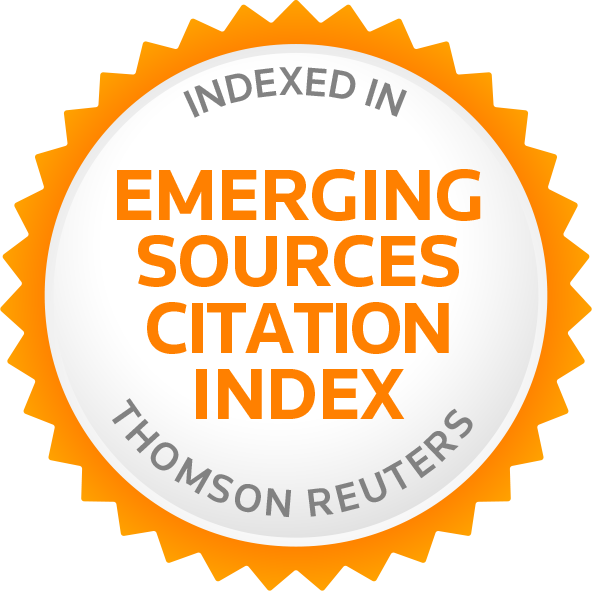Declaration of Independence. Memories, discourses, and antiperonism in Jujuy, 1956
Keywords:
Declaración de la Independencia, antiperonismo, Jujuy, discursoAbstract
In this article the author seeks to determine the features of official discourse in honour to Declaration of Independence in 1956 and to define its forms of operation in the context of desperonization during the Revolución Libertadora in Jujuy (Argentina province). In this way, major trends in official discourse are established. These tendencies were based on the rejection of the stories on the past produced by Peronism; they were also found on the reconstitution of memory about events of Argentinian history. The interpretation supposes that in this context provincial government promoted new significations the studied event.
Downloads
References
BACZKO, Bronislow (2005). Los imaginarios sociales. Memorias y esperanzas colectivas. Buenos Aires: Nueva Visión.
BERROTARÁN, Patricia; KAUFMAN, Alejandro (2014). «La cons- trucción de la tiranía: el Libro negro». En Bonet, María Teresa; Ciappina, Carlos (comps.). Representaciones, discurso y comuni- cación: el peronismo, 1945-1973 (pp. 23-42). La Plata: Editorial de la Universidad de La Plata.
BOLETÍN LEGISLATIVO (1953, 7 de julio). Diario de sesiones. 13° Sesión ordinaria.
BOLETÍN OFICIAL (1956, primer semestre). Decreto N.º 206/G.
BOLETÍN OFICIAL (1656, primer semestre). Decreto N.º 816/G.
CASTILLO, Fernando (2015). «Regímenes discursivos, desperoni- zación y la Revolución Libertadora». En VII Jornadas de Historia, Memoria y Comunicación. Bernal: Universidad Nacional de Quilmes.
DA ORDEN, Liliana; MELON PIRRO, Julio (2007). «Prensa y pero- nismo. El problema y el tratamiento de las fuentes». En Da Orden, Liliana; Melon Pirro, Julio (comps.). Prensa y peronismo. Discursos, prácticas, empresas (1943-1958) (pp. 9-25). Rosario: Prohistoria.
HALL, Stuart (1980). «Encoding / decoding». En Hall, Stuart; Hobson, Dorothy; Lowe, Andrew; Willis, Paul (eds.). Culture, Media, Language. Working Papers in Cultural Studies, 1972-79 (pp. 128-138). Londres: Routledge.
HALL, Stuart (1997). «The work of representation». En Hall, Stuart (ed.). Representation: cultural representations and signifying practices (pp. 13-74). Londres: Sage Publications.
KINDGARD, Adriana (2001). Alianzas y enfrentamientos en los orígenes del peronismo jujeño. San Salvador de Jujuy: Universidad Nacional de Jujuy.
LACLAU, Ernesto; MOUFFE, Chantal (2004). Hegemonía y es- trategia socialista. Hacia una radicalización de la democracia. Buenos Aires: Fondo de Cultura Económica.
LIBERTAD (1956, 13 de enero). «Con olvido de Dios y la Patria deformaban el alma infantil». San Miguel de Tucumán. 13 LIBERTAD (1956, 9 de julio). «El capitán Schack dirigió un mensaje a la población de Jujuy el 9 de julio». San Miguel de Tucumán.
MICIELI, Cristina; PELAZAS, Myriam (2010). Palabras proscrip- tas: dos miradas sobre el hecho maldito. Los discursos de Palabra Argentina y La Prensa durante la Revolución Libertadora. Buenos Aires: Biblos.
NORA, Pierre (1997). «Entre Mémoire et Histoire: la problématique des lieux». En Nora, Pierre (dir.). Les lieux de la mémoire (pp. 23-43). París: Gallimard.
PASSERINI, Luisa (1983). «Memory». History Workshop (N.° 15), pp. 195-196.
POLLAK, Michael (1989). «Memória, esquecimento, silencio». Estudos históricos, 2 (3), pp. 3-15.
SCHMUCLER, Héctor (2002). «Los tiempos de la memoria». Zigurat (N.° 3), pp. 132-136.
SCHWARZSTEIN, Dora (2002). «Memoria e historia». Desarrollo Económico, 42 (167), pp. 471-482.
SCOUFALOS, Catalina (2007). 1955, memoria y resistencia. Buenos Aires: Biblos.
SPINELLI, María Estela (2005). Los vencedores vencidos. El antiperonismo y la «Revolución Libertadora». Buenos Aires: Biblos.
TRAVERSO, Enzo (2007). «Historia y memoria. Notas sobre un de- bate». En Franco, Marina; Levín, Florencia (comps.). Historia re- ciente. Perspectivas y desafíos para un campo en construcción (pp. 67-96). Buenos Aires: Paidós.
REFERENCIAS ELECTRÓNICAS
CASTILLO, Fernando (2013). «La Revolución Libertadora y la pren- sa en Jujuy: trayectorias conniventes y beligerantes». Question (N.° 37), pp. 254-265. La Plata: Facultad de Periodismo y Comunicación Social, Universidad Nacional de La Plata [en línea]. Recuperado de .
CASTILLO, Fernando (2014). «Disputas en torno a historia y me- moria en Jujuy. Del “régimen” peronista a la Revolución Liberta- dora». Letras Históricas (N.° 9), pp. 147-175. Guadalajara: Centro Universitario de Ciencias Sociales y Humanidades, Universidad de Guadalajara [en línea]. Recuperado de .
Downloads
Published
How to Cite
Issue
Section
License
The acceptance of an original by the journal implies the non-exclusive transfer of the patrimonial rights of the authors in favor of the publisher, who allows the reuse, after its edition (postprint), under a Creative Commons License Attribution-NonCommercial-ShareAlike 4.0 International.
According to these terms, the material can be shared (copy and redistribute in any medium or format) and adapted (remix, transform and create another work from the material), provided that a) the authorship and the original source of their publication (magazine and URL of the work) are cited, b) is not used for commercial purposes and c) the same terms of the license are maintained.
The assignment of non-exclusive rights implies that after postprint in Oficios Terrestres authors may publish their work in any language, media and format; in that case, it is requested that they signal that the material was originally published by this journal.
Assignment also entails the authors’ authorization for the work to be collected by SEDICI, the institutional repository of the Universidad Nacional de La Plata, and for it to be indexed in the databases that the publisher thinks appropriate for enhancing the visibility of the published work and its authors.
In addition, the journal encourages authors to submit their works to other institutional and thematic repositories after their publication in Oficios Terrestres, under the assumption that offering society unrestricted access to scientific and academic production contributes to a greater exchange in global knowledge.







_(Custom)11.jpg)




.png)






















